To celebrate scientists and scientific advancements, we have collected a list of the most famous Buddhist scientists that will inspire us for the greater good.
Buddhism is a religion that focuses on meditation, good behavior, and spiritual labor as a means of achieving enlightenment.
We consulted Buddhanet, Buddhism Digital Resource Center, and other top sources to compile a list of scientists who practiced or helped in spreading Buddhism to the West. This list contains scientists who sought enlightenment and nirvana in Buddhism.
While most of these Buddhist scientists were monks, many were laymen who devoted their lives to theoretical pursuits as well as to answer questions regarding the nature of raw materials and phenomena.
These scientists made important advances in chemistry, metallurgy, mechanical devices, firearms technology, and more.
Here are the top 21 Buddhist scientists who made our list and why we thought they deserved a place.
Table of Contents
Famous Buddhist Scientists
#21. Sam Harris (1967-present): A Neuroscientist Who Has Contributed Immensely to Consciousness
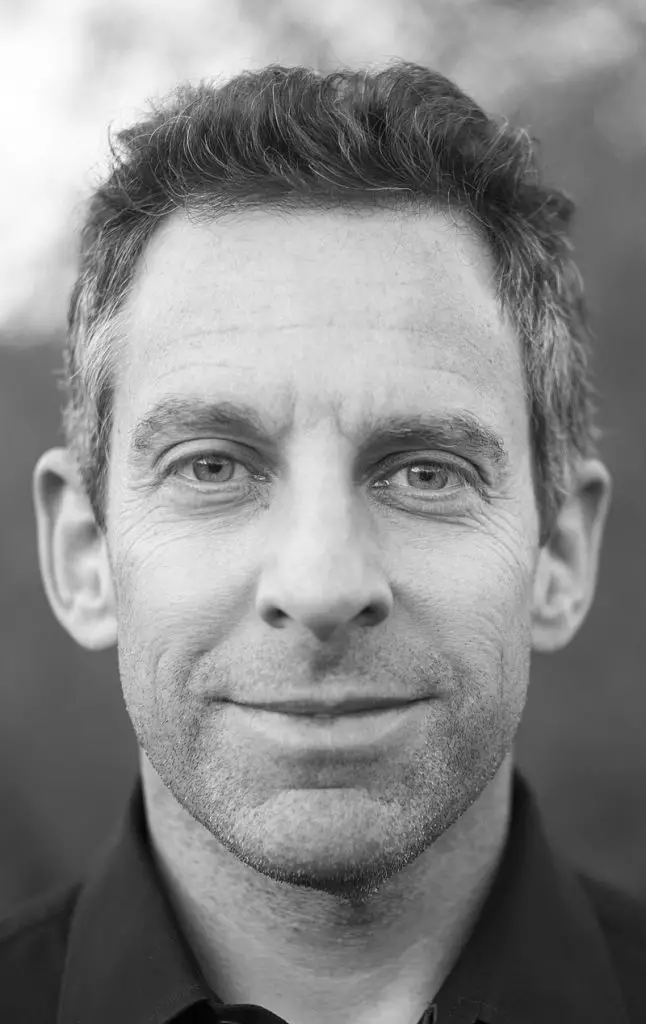
What makes Sam Harris famous?
Sam Benjamin Harris is a neuroscientist, philosopher, and author. He was born in Los Angeles, California. His father, Berkeley, was an actor, and his mother, Susan, was a writer and producer.
Sam Harris is best known for his work on consciousness, free will, and ethics. He has written several books—including “Waking Up,” “Lying,” and “The End of Faith“—that have been translated into more than 25 languages and have sold millions of copies worldwide since their release. Harris recommends a meditation practice typical of Tibetan Buddhism.
What is the best Sam Harris quote?
” Consider it: every person you have ever met, every person will suffer the loss of his friends and family. All are going to lose everything they love in this world. Why would one want to be anything but kind to them in the meantime?”
[Sources: It Is Always Now, The Guardian]
#20. R. Adam Engle (1942-present): Co-Founder of Mind and Life Institute
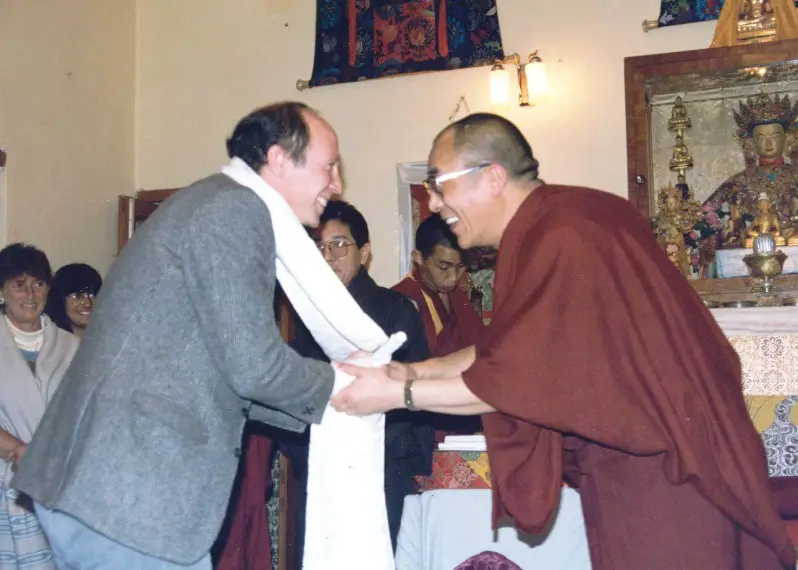
What makes R. Adam Engle famous?
R. Adam Engle is a US-born social entrepreneur who has contributed significantly to the modern science of Contemplative studies.
Engle’s work has been focused on promoting the integration of contemplative Buddhist practices into Western culture and society. In particular, he co-founded the Mind and Life Institute (MLI) in 1991, bringing together scientists and spiritual leaders for dialogue on consciousness-related issues, including brain science, philosophy, theology, and ethics.
In recent years he has shifted his focus toward helping people live more life-centered lives by conducting retreats around the world that introduce participants to meditation practices such as mindfulness meditation and loving-kindness meditation.
[Sources: HandWiki, Academic Influence]
#19. John D. Dunne (1961-present): A Key Proponent of Buddhism in the West

What makes John D. Dunne famous?
John D. Dunne, born in 1961 in New York City, is a Buddhist philosopher and chair of contemplative humanistic studies at the University of Wisconsin-Madison. He has been an associate professor of a department (religion) at Emory University.
Dunne’s primary focus as a philosopher is to explore cognitive science through the lens of contemplative practice and Buddhist philosophy. He has argued that Buddhism offers an alternative to Western philosophy’s focus on self-consciousness: instead of trying to understand consciousness through rational thought, it can be understood through meditation.
He has written extensively on mindfulness, contemplative practice, and Buddhist epistemology. He also teaches both at the Zen Center and Upaya Institute.
What is the best John D. Dunne quote?
“The way of words, of knowing and loving words, is a way to the essence of things, and to the essence of knowing.”
[Sources: John D. Dunne, Tricycle]
Similar Articles:
- 20+ Famous Hispanic Scientists That You Should Know
- 20+ Famous Black Scientists That You Should Know
- 20+ Famous Female Scientists That You Should Know
#18. Ellison Onizuka (1946-1986): The First Asian American in Space
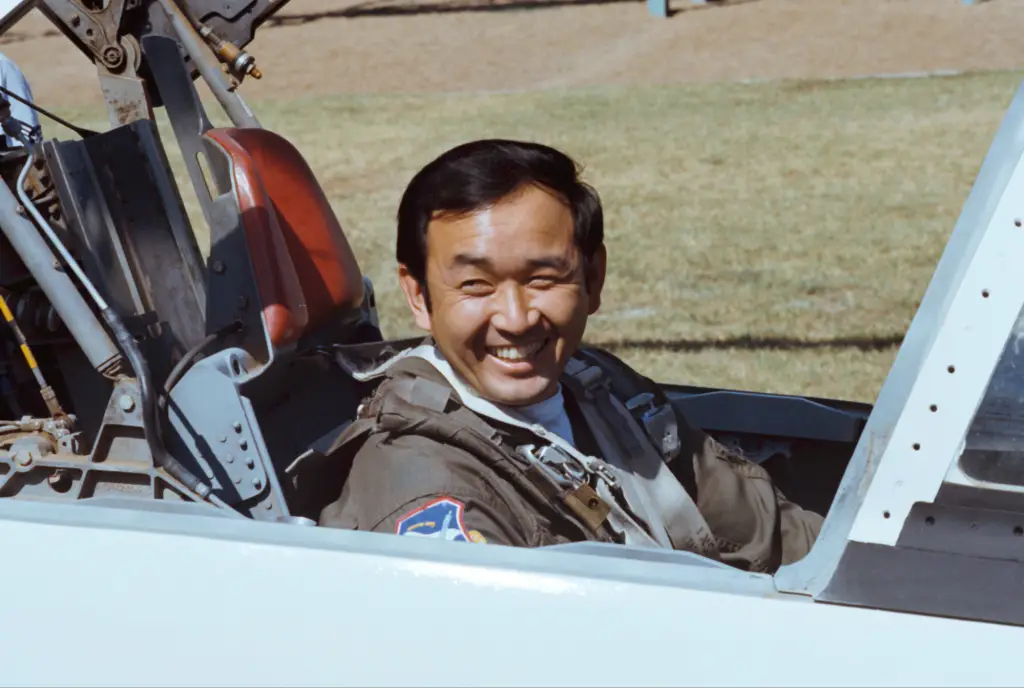
What makes Ellison Onizuka famous?
Ellison Shoji Onizuka was a NASA astronaut and engineer who was born in Hawaii. He studied at the University of Colorado and graduated with a master’s degree in Aerospace Engineering.
He was the first Japanese-American to go to space. Ellison did so aboard STS-51-C Space Shuttle Discovery in 1985. Onizuka is also best known for being part of the team aboard STS-51-L, which launched from the Kennedy Space Center on January 28, 1986, and crashed.
Onizuka was killed when the Challenger exploded during reentry into Earth’s atmosphere on January 28th, 1986—just 73 seconds after launch.
He was awarded the Congressional Space Medal of Honor after his death. His character was featured in movies such as Challenger and Star Trek.
What is the best Ellison Onizuka quote?
“Your vision is not limited by what your eyes can see, but by what your mind can imagine.”
[Sources: NASA]
#17. Jack Kornfield (1945-present): Teacher of Vipassana Meditation

What makes Jack Kornfield famous?
Jack Kornfield is a Buddhist monk, psychologist, and author. He went to Dartmouth College before going to Thailand, where he studied Buddhism under master Ajahn Chah. Kornfield also has a Ph.D. in Clinical Psychology.
He would later return to the United States to contribute to the founding of Naropa University.
Kornfield is best known for his work in the field of Buddhist meditation and mindfulness. He has also taught Vipassana meditation to Americans, led gatherings, and explored Western and Eastern philosophy in his books.
What is the best Jack Kornfield quote?
“The heart is like a garden. It can grow compassion or fear, resentment or love. What seeds will you plant there?”
[Sources: Wikipedia]
#16. Lama Padma Samten (1949-present): Integrated Buddhism to Medicine
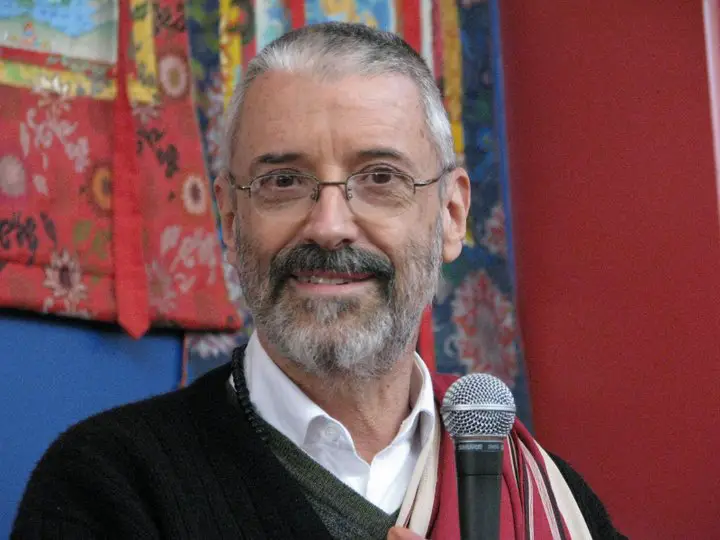
What makes Padma Samten famous?
Originally known as Alfredo Aveline, Padma Samten is an internationally-renowned Brazilian Buddhist scholar who founded CEBB (Bodhisattva Center for Buddhist Studies).
He had his graduate studies in Quantum physics at the Universidade Federal do Rio Grande do Sul (UFRGS). He later learned Buddhist doctrine under Chagdud Tulku Rinpoche, Zen, and other trainers.
He’s best known for being instrumental in integrating mind training and Buddhism into medicine, psychology, education, and the economy. He also helped bring Buddhist masters to Brazil.
For his fantastic work, Padma Samten was awarded the honor of being an honorary citizen in two Brazilian cities, Viamão and Curitiba.
What is the best Padma Samten quote?
“To ignore the workings of one’s own mind and inner world is tantamount to emotional illiteracy.”
[Source: Padma Samten]
Similar Articles:
- 20+ Famous Computer Scientists That You Should Know
- 19 Famous Christian Scientists That You Should Know
- 17 Famous Scientists With ADHD That You May Not Know
#15. George Dvorsky (1970-present): A Secular Buddhist and Transhumanist

What makes George Dvorsky famous?
George Dvorsky is a Canadian futurist, transhumanist, and bioethicist. He is the former chair of IEET (Institute for Ethics and Emerging Technologies).
Dvorsky also served as Toronto Transhumanist Association’s president—an organization he co-founded.
As a science and technology writer, Dvorsky specializes in the future of humanity. He is the producer and editor of Sentient Developments, a blog (and podcast) that explores how emerging technologies will affect society, culture, and the future of our species.
He is known as a progressive environmental scientist, secular Buddhist, and advocate for animal rights and ancestral health.
Dvorsky is also famous for his work as co-founder of the Institute for Ethics and Emerging Technologies (IEET). The organization has been at the forefront of transhumanism since its inception, hosting conferences and publishing articles by leading thinkers on topics such as artificial intelligence and bioethics.
George’s work has been in publications like CBC, BBC, The Guardian, Al-Jazeera, and more. He has also won the Blogisattva Award.
What is the best George Dvorsky quote?
“Science works in mysterious ways.”
[Sources: Open Space 35, Wikipedia]
#14. Steve Jobs (1955-2011): Co-Founder of Apple and a Practitioner of Zen

What makes Steve Jobs famous?
It’s hard to imagine the world without Steve Jobs. Born in San Francisco in 1955, the American inventor, businessman, and co-founder of Apple was a pioneer of the computer revolution. Alongside Steve Wozniak, he pioneered the personal computer industry with the Apple ii. He went on to found Apple alongside Wozniak and served as CEO from 1997 until 2011 when he stepped down due to health concerns.
He was best known for his charismatic personality and innovative leadership style at Apple (and later NeXT), which helped make it one of the most successful companies in history.
Jobs also had an interest in Zen Buddhist practices and became a Buddhist practitioner after leaving Reed College in Oregon to travel through India.
The experience with the Buddha’s teaching changed him forever and influenced him throughout his life. In addition to being an innovator in technology, Jobs was also a pioneer of visual effects using computer graphics technology; this led to him creating Pixar Animation Studios with George Lucas.
What is the best Steve Jobs quote?
“Sometimes life is going to hit you in the head with a brick. Don’t lose faith.”
[Sources: Encyclopedia Britannica, Forbes]
#13. Chögyam Trungpa (1939 – 1987): Founder of Shambhala Training Method

What makes Chögyam Trungpa famous?
Chögyam Trungpa is one of the most influential figures in Tibetan Buddhist history. He was born in Tibet, and he passed away at the age of forty-eight. He was a scholar, teacher, artist, and master of Tibetan Buddhist meditation.
A Buddhist meditation master and prolific writer, Chögyam Trungpa was among the first to bring Buddhist teachings to the west. He is best known for being the founder of Shambhala Buddhism and for creating the Shambhala training method.
This method incorporates meditation into daily life through spiritual practice such as physical exercise, artistic expression, and work ethic. In addition to creating this training method, he established Naropa University in Colorado and translated many Tibetan texts into English.
Trungpa was a controversial human being during his lifetime due to some of his actions and teaching methods—he was a heavy drinker, a womanizer, and could physically assault his students. But these are not uncommon traits among Tibetan Buddhist teachers who were trained through ritualistic Buddhist practices that included alcohol consumption.
What is the best Chogyam Trungpa quote?
“The key to warriorship and the first principle of Shambhala vision is not being afraid of who you are. Ultimately, that is the definition of bravery: not being afraid of yourself.”
[Sources: Encyclopedia Britannica, Masters]
Similar Articles:
- 18 Famous Asian Scientists You May Not Know
- 20 Famous American Scientists You Should Know
- 17 Famous Forensic Scientists You Should Know
#12. Robert Thurman (1941-present): The First Westerner To Be Ordained by Dalai Lama

What makes Robert Thurman famous?
Robert Thurman is an American-born Buddhist author and the first Westerner that Dalai Lama ordained. He was born in New York City in 1941 and studied at Harvard University, where he received his Ph.D. in 1972.
Besides being a professor at Columbia University, Thurman is best known for his contributions to translating Buddhist texts into English, including the Vimalakirti Sutra. He also co-founded the Tibetan House in New York City.
Thurman has also been involved with various organizations that promote the study of Buddhism, including The Tibet House, the US, which he co-founded in 1986.
What is the best Robert Thurman quote?
“Enlightenment is not meant to be an object of religious faith. It is an evolutionary goal, something we want to become.”
[Sources: Bob Thurman, Carnegie Council]
#11. Ken Wilber (1949-present): The Person Who Developed The Integral Theory
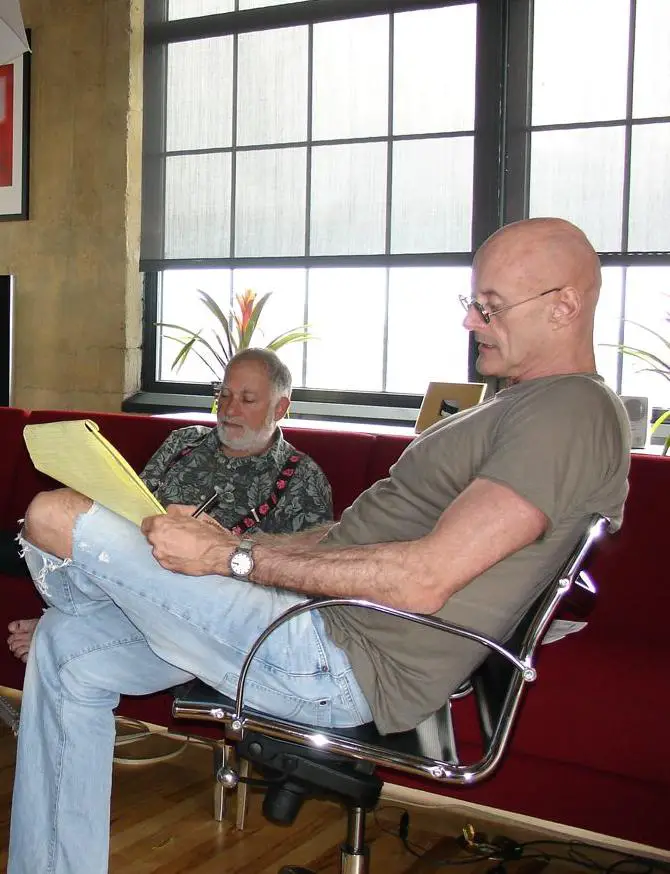
What makes Ken Wilber famous?
Ken Wilber is an American-born author, philosopher, and spiritual teacher. He was born in Oklahoma City in 1949 and has earned his reputation as one of the most prolific thinkers in the world.
Wilber is probably best known for his integral theory, which attempted to bring meaningful unity between human experience and knowledge. The idea is based on the premise that everything is connected and that every part of life has its own value.
He has written a number of books on integral theory and transpersonal psychology, including Sex, Ecology, Spirituality, and A Theory of Everything.
What is the best Ken Wilber quote?
“Eternity is not ever-lasting time but the real, unfading, indestructible, and timeless present, for, as Schroedinger said, the present is the only thing that has no end.”
[Sources: Integral Life, Psychology Wiki]
Top 10. Famous Buddhist Scientists
#10. Barry Michael Kerzin (1947-present): The American Physician Who Served Dalai Lama
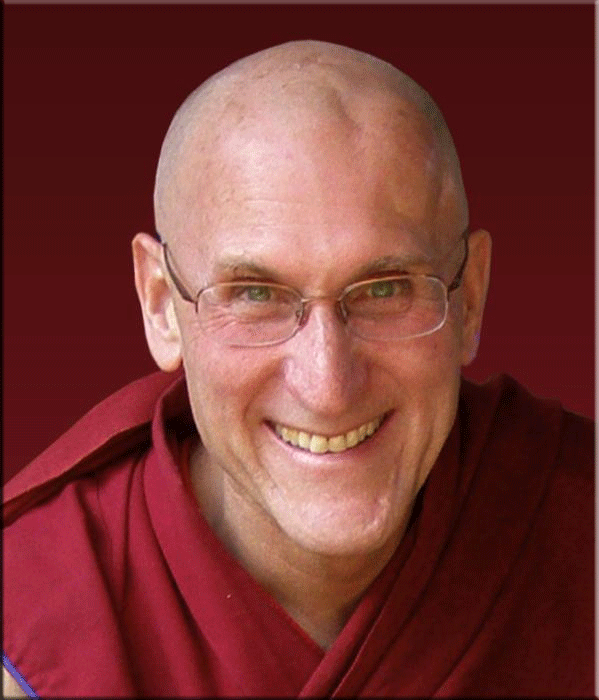
What makes Barry Kerzin famous?
Barry Michael Kerzin is an American doctor, a Buddhist monk, and a former personal physician to the Dalai Lama. Kerzin was born in California and studied Philosophy at the University of California. He received his medical degree from the University of Southern California.
After visiting several monasteries in Nepal, India, and Sri Lanka, Barry Kerzin accepted an appointment as an assistant professor in the US (University of Washington).
Kerzin is famous for his expertise in medicine and for serving the Dalai Lama.
What is the best Barry Kerzin quote?
“The Buddha taught that a thought becomes a word that ripens into action that develops into a habit.”
[Sources: TEDx Talks, Wikipedia]
Similar Articles:
- 18 Famous Environmental Scientists You Should Know
- 20+ Famous Space Scientists That You May Not Know
- 16 Famous Data Scientists That You Should Know
#9. Francisco Varela (1946-2001): Developed and Introduced Autopoiesis To Biology
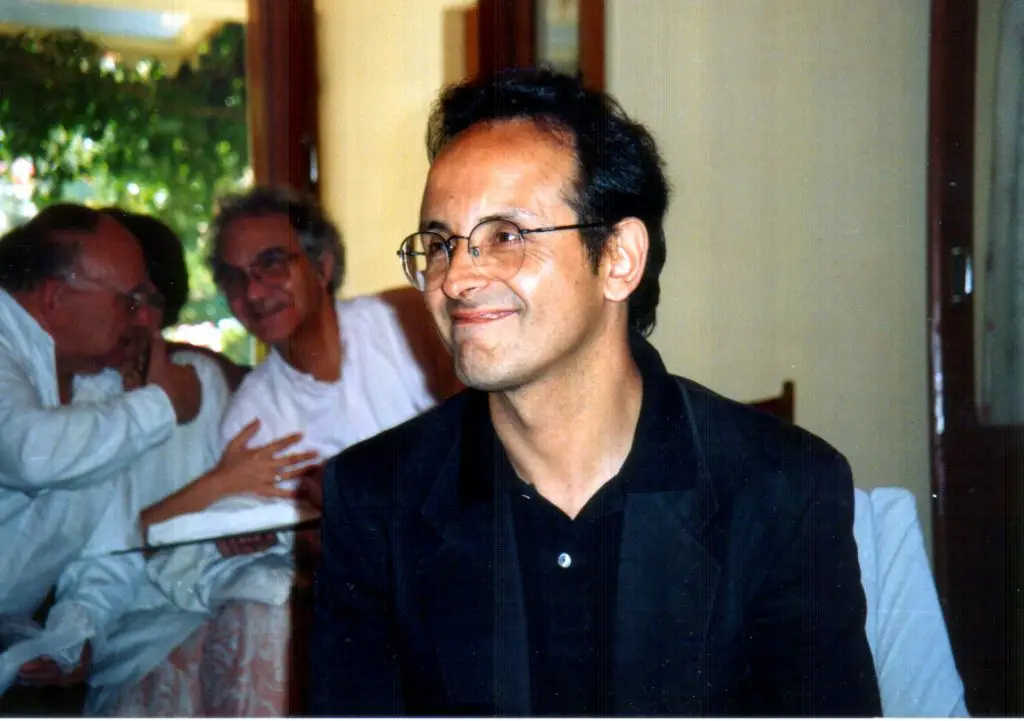
What makes Francisco Varela famous?
Francisco Varela was born in Santiago, Chile. He became a biologist and neuroscientist at the University of Chile and Harvard.
Varela is best known for introducing the autopoiesis concept to biology, alongside Humberto Maturana. He also helped establish the Mind and Life Institute, which promotes the Buddhism-science dialog by bringing together top scientists and Buddhist scholars to collaborate on projects that combine meditation with modern science.
In 1986, Varela moved to Paris, where he taught neuroscience until his death in 2001.
What is the best Francisco Varela quote?
“When a living system is suffering from ill health, the remedy is found by connecting with more of itself.”
[Sources: Tricycle, Encyclopedia Britannica]
#8. Susan Blackmore (1951-present): Coined and Spread The Concept of Memetics

What makes Susan Blackmore famous?
Susan Blackmore is a British researcher, writer, and Zen practitioner. She was born in London in 1951 and attended St. Hilda’s College, where she graduated with a bachelor’s degree in physiology.
Blackmore is best known for her book The Meme Machine (1999), which explores memetics—the idea that ideas spread through society as viruses do.
Other than taking part in writing more than 40 books, she also contributed to over 60 scholarly articles on parapsychology, consciousness, and memetics.
What is the best Susan Blackmore quote?
“Free will and consciousness is an illusion, and the self is a complex of memes.”
[Sources: Susan Blackmore, Edge]
#7. James H Austin (1925-present): The Author of Zen and The Brain
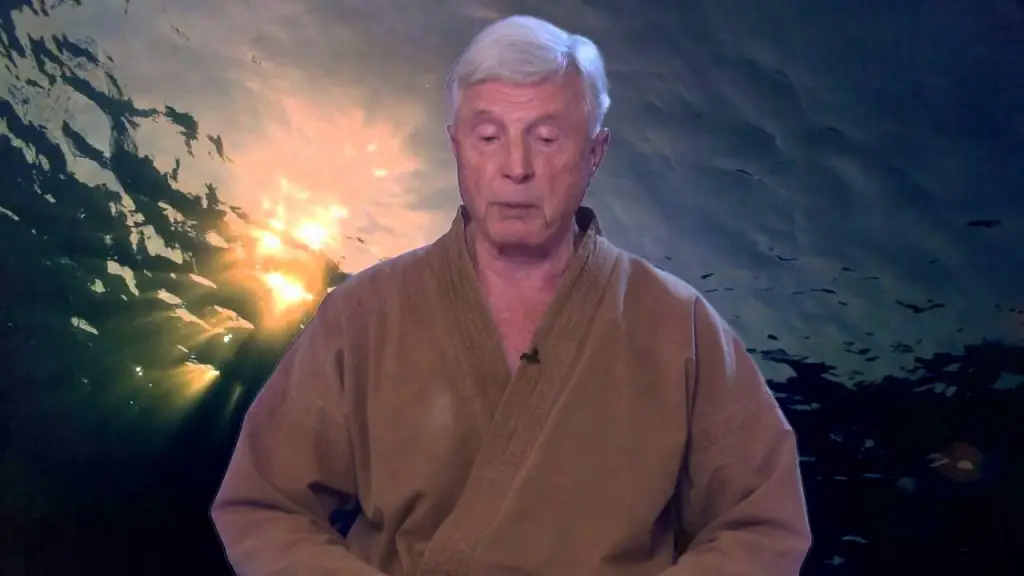
What makes James H. Austin famous?
James H. Austin was born in Cleveland, Ohio, in 1925. He is a neurologist who has contributed to neuropathology, neurochemistry, neuropharmacology, and clinical neurology.
Austin is best known for his book Zen and The Brain, where he explains how meditation links to neurophysiology and consciousness.
In addition to writing books about the brain, Austin has also written several articles on other aspects of neuroscience. He started practicing Zen in 1974 and has experienced Buddhism.
What is the best James H. Austin quote?
“Emotions are not ‘bad’. At the roots of our emotions are primal energies which can be put to fruitful use.”
[Sources: MIT Press, Zen, and The Brain]
#6. Stephen Batchelor (1953-present): A Proponent of Agnostic Buddhism
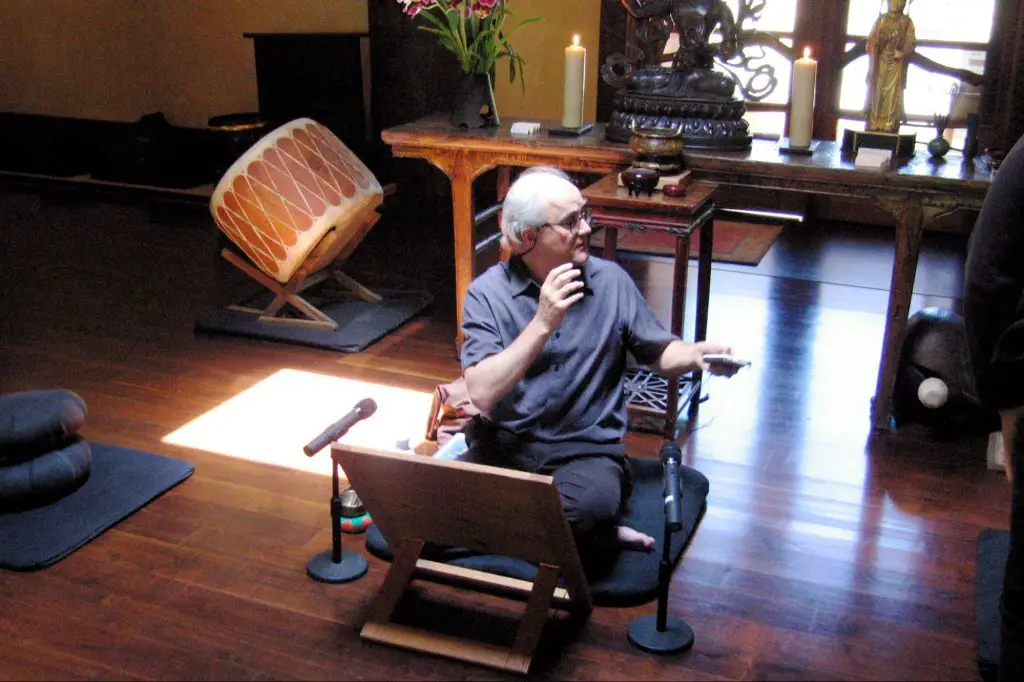
What makes Stephen Batchelor famous?
Stephen Batchelor is a Scottish teacher, writer, and meditation teacher. He was born in 1953 in Dundee, Scotland, and has spent most of his adult life living in Asia.
He is best known for advocating for agnostic Buddhism—a form of Buddhism that doesn’t believe in any Gods or deities. Instead, it focuses on cultivating compassion and wisdom through meditation practice.
Batchelor began his study of Buddhism when he was 18 years old and first traveled to India to study meditation with the Buddhist monks there. After studying with several different teachers over the course of several years, he decided to focus on the earlier Buddhist philosophies.
Stephen Batchelor is now a faculty member at Bodhi College, where they translate Buddhist texts written by traditional Buddhists.
What is the best Stephen Batchelor quote?
“The greatest threat to compassion is the temptation to succumb to fantasies of moral superiority.”
[Sources: Onbeing, Bodhi College]
#5. Chagdud Tulku Rinpoche (1930-2002): A Buddhist Teacher and Author
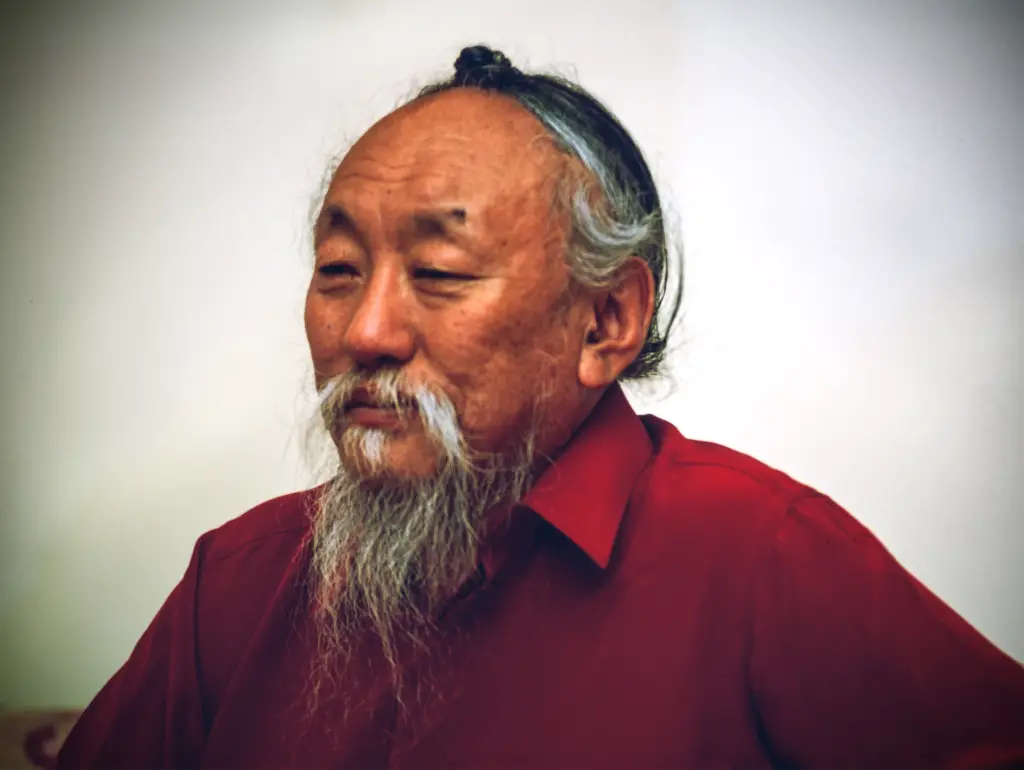
What makes Chagdud Tulku Rinpoche famous?
Chagdud Tulku Rinpoche was a skilled physician and an expert on the Tibetan Buddhist tradition. He spent most of his life studying and teaching it. Chagdud Tulku was born in Tibet in 1930.
Under the guidance of his teachers, Chagdud Tulku Rinpoche developed a knack for teaching others about Tibetan Buddhism—a subject that can be quite confusing for those who are unfamiliar with it.
Tulku has written many books on this complex tradition. He also founded the Chagdud Gonpa Foundation, which is dedicated to preserving Tibetan culture and education. The foundation also supports those who cannot afford their religious studies.
What is the best Chagdud Tulku Rinpoche quote?
“Time is very precious. Do not wait until you are dying to understand your spiritual nature. If you do it now, you will discover resources of kindness and compassion you didn’t know you had.”
[Sources: Tricycle, The story of Chagdud Rinpoche]
#4. Matthieu Ricard (1946-present): The Man Who Ditched His Doctorate To Pursue Buddhism
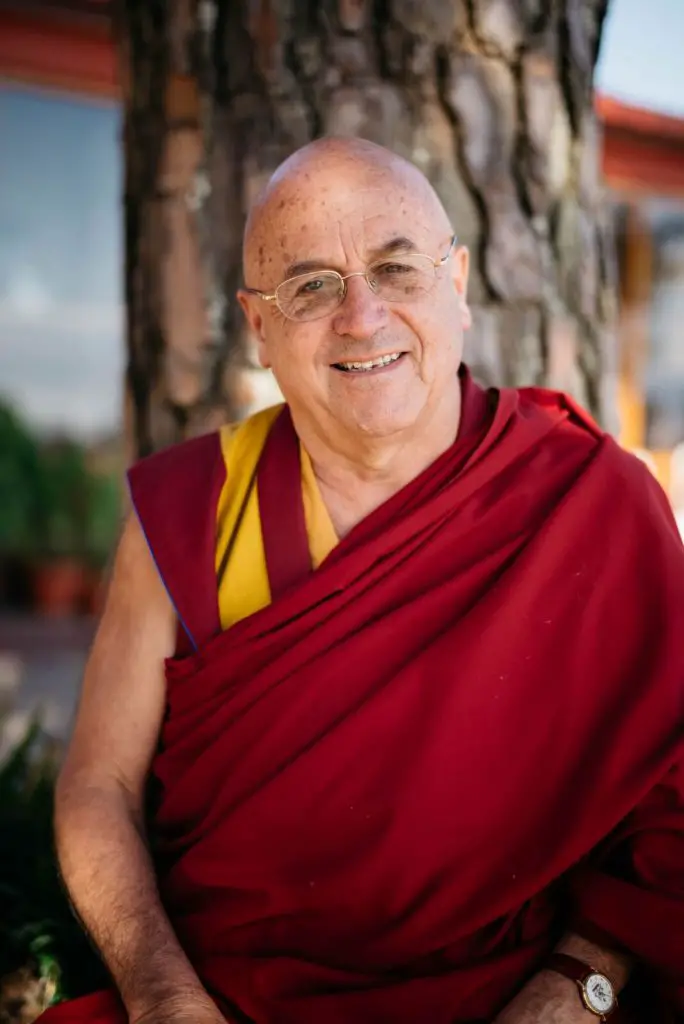
What makes Matthieu Ricard famous?
Matthieu Ricard is a French Tibetan Buddhist monk who has been studying and practicing Buddhism for over 40 years. He was born in France and studied molecular genetics for Ph.D. at the Pasteur Institute.
Ricard decided to practice Buddhism instead of a scientific career. He went to India to study Buddhist teachings with Tibetan Buddhist monks and has since written many books about the subject.
Ricard uses a Buddhist perspective to explore happiness, compassion, and altruism. In this religious sense, aspiring Buddhists can learn more from this great scientist who also studied the effects of meditation on the brain and body.
Matthieu Ricard is also known for his photography—he’s published books of photos taken during his travels to Tibet, Bhutan, Nepal, and India. In them, he captures the natural beauty and spiritual moments that feel almost otherworldly.
The geneticist has graced several international forums, including the World Happiness Forum. He was also once the recipient of the French National Order of Merit.
What is the best Matthieu Ricard quote?
“Happiness is a state of inner fulfillment, not the gratification of inexhaustible desires for outward things.”
[Sources: Matthieu Ricard, The habits of happiness with TED]
#3. D.T. Suzuki (1870-1966): The Japanese Monk Who Popularized Buddhism in the West
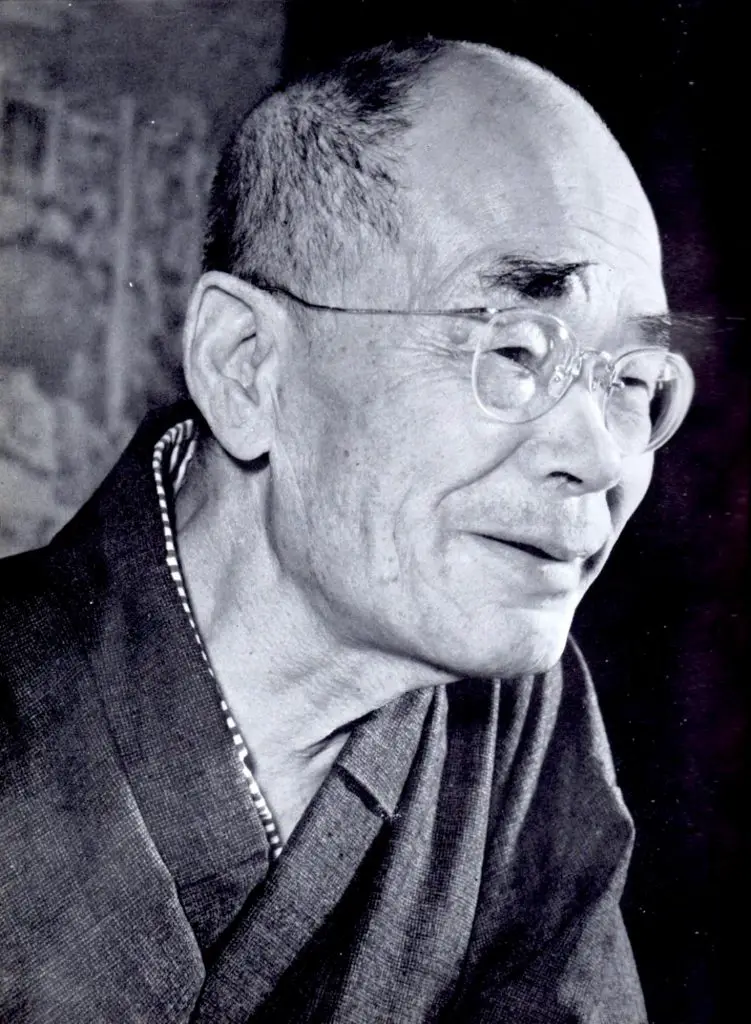
What makes D.T. Suzuki famous?
Daisetsu Teitaro Suzuki was a Japanese-born American philosopher and one of the most influential Buddhist monks. He was born in 1870 in Kanazawa, Japan, and later moved to the United States.
Daisetsu is best known for his work in spreading shin and zen Buddhism to the West. He helped spread this philosophy through his books, including An Introduction to Zen Buddhism and Essays in Zen Buddhism, among others. He also lectured at western universities such as Columbia University.
Suzuki was once the recipient of the National Medal of Culture (Japan) for his work. He was a Nobel Prize nominee in 1963.
What is the best D.T. Suzuki quote?
“Emptiness which is conceptually liable to be mistaken for sheer nothingness is in fact the reservoir of infinite possibilities.”
[Sources: Asian Studies, Encyclopedia Britannica ]
#2. Humberto Maturana (1928-2021): Contributed to The Creation of The Autopoiesis Concept
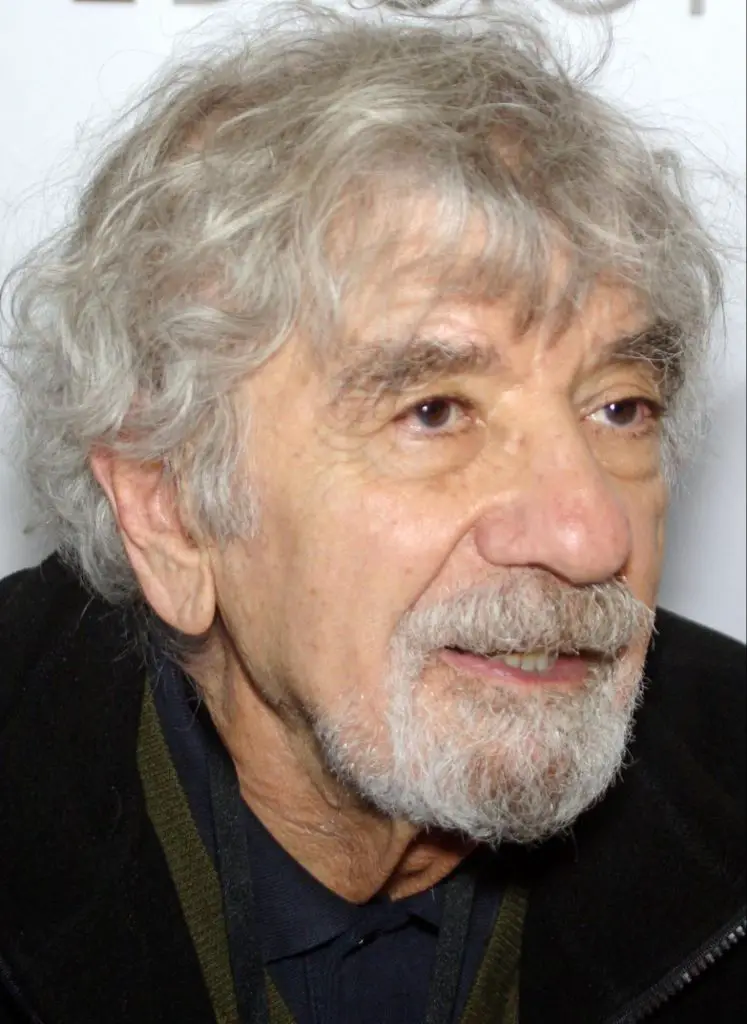
What makes Humberto Maturana famous?
Humberto Maturana was a Chilean-born philosopher and biologist who is considered one of the most influential thinkers of our time. He was born in Santiago and studied medicine at the University of Chile and in England, where he earned a Ph.D. in biology.
His most notable contribution is his work with Francisco Varela on autopoiesis—studying self-organization processes in organisms. He also developed the idea of structural coupling, which he used to explain how organisms can adapt to their environment while still remaining stable as individuals over time.
Maturana’s ideas have influenced many fields, including cybernetics, evolution theory, and systems thinking more generally. In 1994, he was awarded the National Prize for Natural Sciences in Chile for his work on these topics.
What is the best Humberto Maturana quote?
“Only love expands intelligence. To live in love is to accept the other and the conditions of his existence as a source of richness, not as opposition, restrictions or limitation.”
[Sources: Encyclopedia Britannica, Pantheon]
#1. Soyen Shaku (1860-1919): D.T. Suzuki’s Teacher and The First Monk To Teach Buddhism in The West
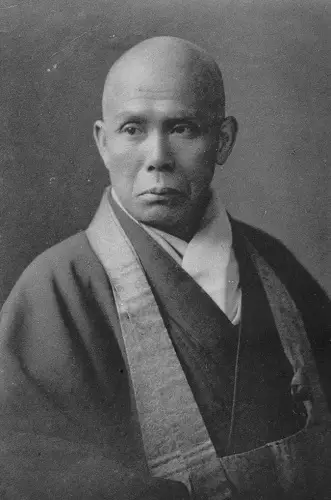
What makes Soyen Shaku famous?
Soyen Shaku was born in 1860 in Fukui, Japan. He studied at Keio University and later traveled to the US to participate in the World Parliament of Religions, which took place in Chicago in 1893.
D.T. Suzuki, who would later become one of the most influential figures in modern Zen Buddhism, was then a young man and translated his speech into English for the audience at the meeting.
Besides being one of the first Buddhist monks to teach zen in the US, he was also the one who asked D.T. Suzuki to move to the West.
During his time as the chaplain of the Japanese army, he taught the soldiers to fight both internal and external enemies.
What is the best Soyen Shaku quote?
“Have the fearless attitude of a hero and the loving heart of a child.”
[Sources: Prabook]
Final Thoughts
We found 20+ people in the history of Buddhism that meets the criteria for being famous scientists, although just a few managed to be great scholars and both. Additionally, we discovered that while several are Mahayana Buddhist, some still follow Theravada Buddhist tradition.
With this said, these individuals are still significant in many other ways, from tackling human suffering, and cosmic religion, and telling us more about their personal beliefs and the historical Buddha.
Who is your favorite Buddhist scientist?
Let us know in the comment below.

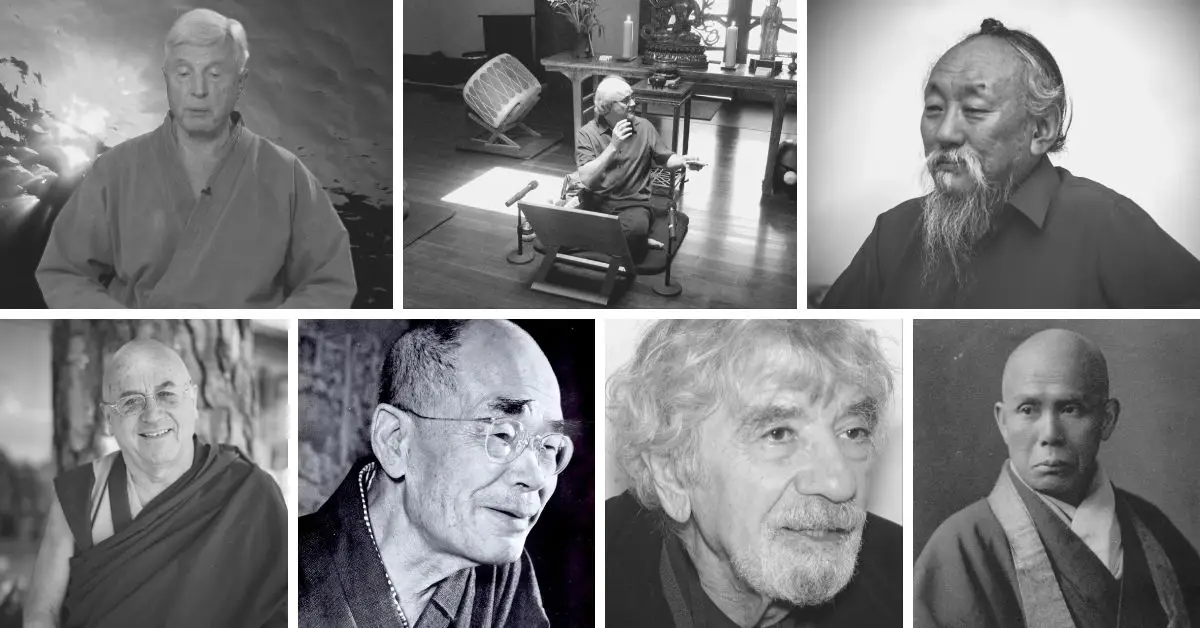

I agree with the high ranking of Stephen Batchelor, who has a big influence on my personal Buddhist development. But I miss his one time adversary and one time colleague Alan Wallace. After my second retreat led by Stephen Batchelor and his wife Martine in the Netherlands, accidentally (?) I could follow a weekend retreat led by Alan Wallace, a week later. After seeing through his more traditional parafernalia, I was surprised by his great knowledge of traditional Buddhism, his clarity and energy, and his broad views on topics regarding our actual society and science. So he also became a big influence for me, next to Stephen Batchelor.
Thank you for sharing your thoughts on the ranking of Stephen Batchelor and the absence of Alan Wallace in our list. We appreciate your feedback and are glad to hear that both of these individuals have had a positive impact on your personal Buddhist development.
We understand that Alan Wallace’s traditional approach, his knowledge of traditional Buddhism, clarity, energy, and broad views on society and science, has also influenced you and we apologize for not including him in our list. We will make sure to include him in the future as a notable figure in the field of Buddhism.
We appreciate your feedback and are always open to suggestions for our list. We are glad to know that you found value in the retreats led by Stephen Batchelor and his wife Martine and Alan Wallace. We hope you continue to find inspiration and growth in your Buddhist practice.
You are neglecting the pioneering work of the Theosophical Society and its offshoot the Buddhist Theosophical Society in bringing a knowledge of Buddhism to the West and conversely a knowledge of the West and a belief in scientific rationalism to the Buddhists in the East beginning in Ceylon, now Sri Lanka, then to India where Buddhism had almost died out, and inaugurating the first attempt to unite Buddhists from all countries into one brother- (and sister-) hood. I am thinking primarily of the American Henry Steel Olcott (1832-1907) who is being honored in connection with the 75th anniversary of Sri-Lankan-US relationships, and Annie Besant, the Englishwoman whom H.S.O. brought into the Theosophical Society and who became its head and who was recently honored by President Modi for her role in improving the status of women in India. You can consult their Wiki articles for an introduction to their work. In the interests of brevity I am neglecting the work of their Indian and Sri Lankan teachers and collaborators.
Hi Douglas
Thank you for your thoughtful comment on our website. We appreciate your insights and the reminder of the important work done by the Theosophical Society and its offshoot, the Buddhist Theosophical Society, in bringing knowledge of Buddhism to the West and vice versa.
We will certainly keep your suggestions in mind as we explore different aspects of Buddhist history and philosophy on our website.
Thank you again for taking the time to contribute to the conversation.